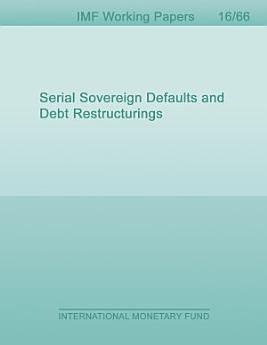Serial Sovereign Defaults and Debt Restructurings
сак 2016 · International Monetary Fund
Электронная кніга
45
Старонкі
reportАцэнкі і водгукі не спраўджаны Даведацца больш
Пра гэту электронную кнігу
Emerging countries that have defaulted on their debt repayment obligations in the past are more likely to default again in the future than are non-defaulters even with the same external debt-to-GDP ratio. These countries actually have repeated defaults or restructurings in short periods. This paper explains these stylized facts within a dynamic stochastic general equilibrium framework by explicitly modeling renegotiations between a defaulting country and its creditors. The quantitative analysis of the model reveals that the equilibrium probability of default for a given debt-to-GDP level is weakly increasing with the number of past defaults. The model also accords with an additional fact: lower recovery rates (high NPV haircuts) are associated with increases in spreads at renegotiation.
Ацаніце гэту электронную кнігу
Падзяліцеся сваімі меркаваннямі.
Чытанне інфармацыb
Смартфоны і планшэты
Усталюйце праграму "Кнігі Google Play" для Android і iPad/iPhone. Яна аўтаматычна сінхранізуецца з вашым уліковым запісам і дазваляе чытаць у інтэрнэце або па-за сеткай, дзе б вы ні былі.
Ноўтбукі і камп’ютары
У вэб-браўзеры камп’ютара можна слухаць аўдыякнігі, купленыя ў Google Play.
Электронныя кнiгi i iншыя прылады
Каб чытаць на такіх прыладах для электронных кніг, як, напрыклад, Kobo, трэба спампаваць файл і перанесці яго на сваю прыладу. Выканайце падрабязныя інструкцыі, прыведзеныя ў Даведачным цэнтры, каб перанесці файлы на прылады, якія падтрымліваюцца.






